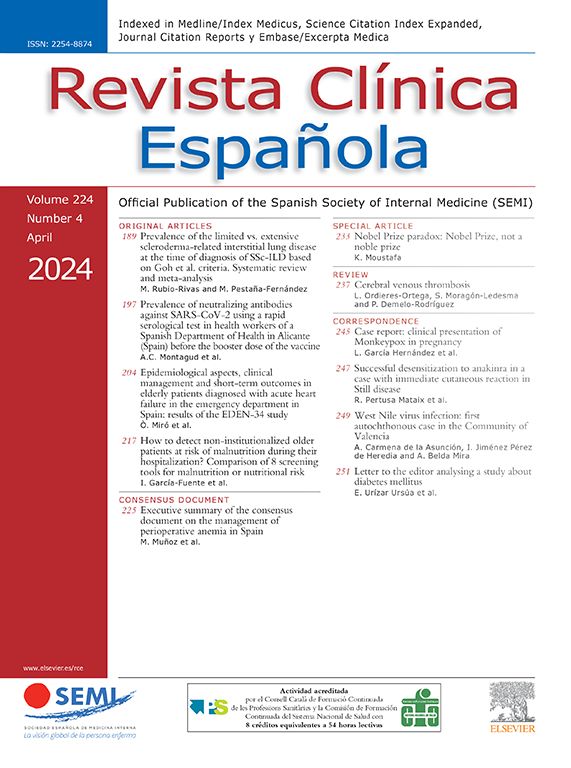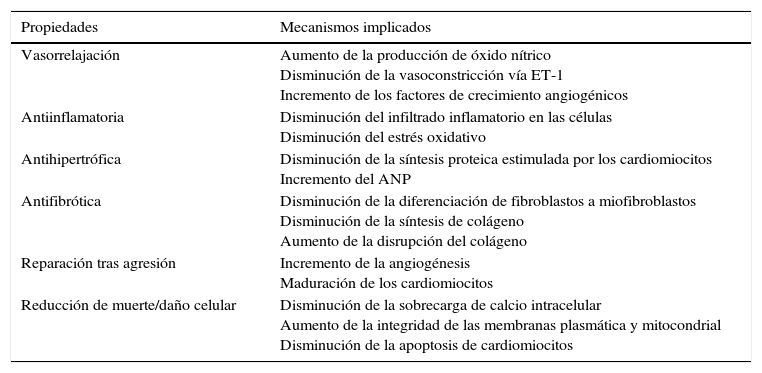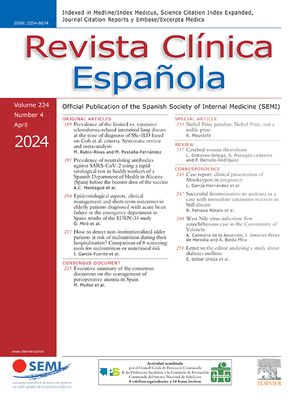A diferencia de la insuficiencia cardiaca (IC) crónica, el tratamiento de la IC aguda no ha cambiado en la última década. Los fármacos empleados han demostrado controlar los síntomas, pero no han conseguido una protección orgánica ni una reducción de la morbimortalidad a medio y largo plazo. Los avances en el conocimiento de la fisiopatología de la IC aguda sugieren que el tratamiento debe dirigirse no solo a corregir las alteraciones hemodinámicas y a conseguir un alivio sintomático, sino sobre todo a prevenir el daño orgánico, contrarrestando el remodelado miocárdico y las alteraciones cardiacas y extracardiacas. Las moléculas que en la fase aguda de la IC puedan ejercer acciones vasodilatadoras y antiinflamatorias —y que sean capaces de detener la muerte celular, favoreciendo los mecanismos de reparación— podrían tener un papel esencial en la protección orgánica.
Unlike chronic heart failure (HF), the treatment for acute HF has not changed over the last decade. The drugs employed have shown their ability to control symptoms but have not achieved organ protection or managed to reduce medium to long-term morbidity and mortality. Advances in our understanding of the pathophysiology of acute HF suggest that treatment should be directed not only towards correcting the haemodynamic disorders and achieving symptomatic relief but also towards preventing organ damage, thereby counteracting myocardial remodelling and cardiac and extracardiac disorders. Compounds that exert vasodilatory and anti-inflammatory action in the acute phase of HF and can stop cell death, thereby boosting repair mechanisms, could have an essential role in organ protection.
Article
Diríjase desde aquí a la web de la >>>FESEMI<<< e inicie sesión mediante el formulario que se encuentra en la barra superior, pulsando sobre el candado.

Una vez autentificado, en la misma web de FESEMI, en el menú superior, elija la opción deseada.

>>>FESEMI<<<








